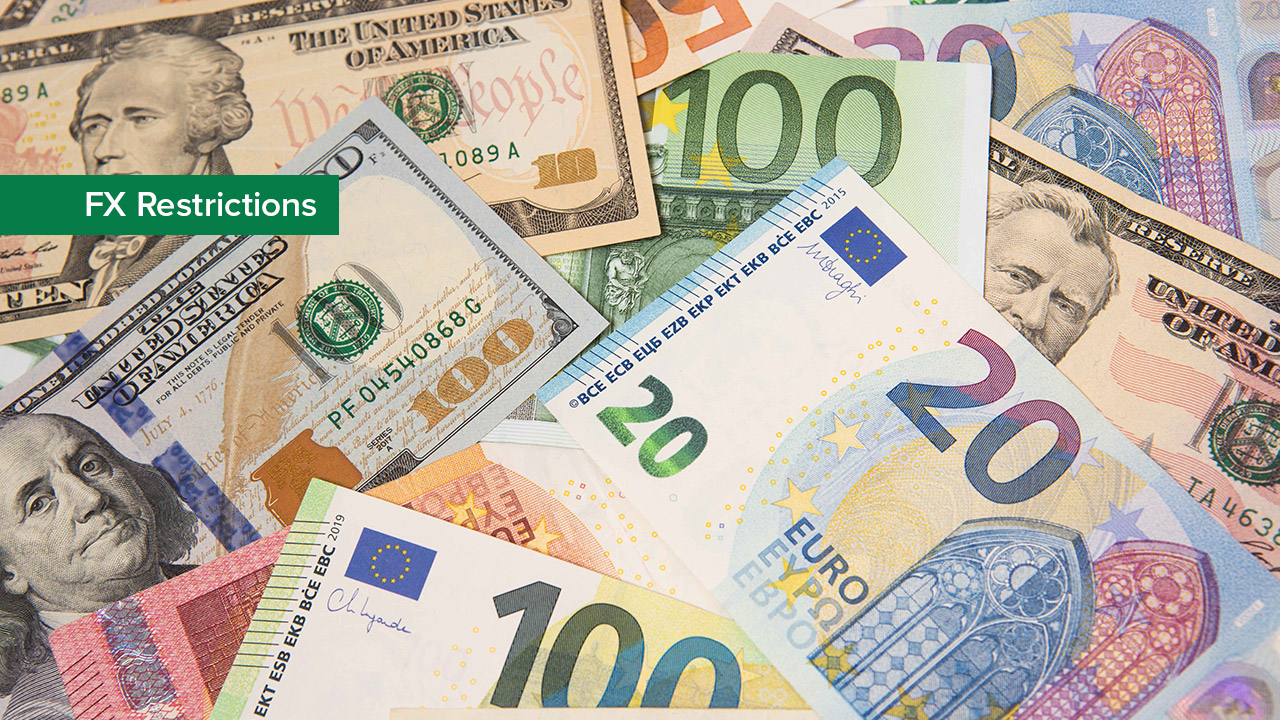The National Bank of Ukraine (NBU) is introducing the largest package of measures to ease the FX restrictions for businesses since the start of the full-scale war. The purpose of these changes is to improve the conditions for doing business in Ukraine and promote local companies to expand their business abroad, as well as to support the economic recovery and new investment inflows to Ukraine.
Given that the necessary preconditions and the NBU’s thorough analysis of each individual measure, the changes should not create additional risks to the macrofinancial stability and the FX market resilience. These changes have already been taken into account in the revised macroeconomic forecast, which assumes that international reserves will remain close to their current level this year and next year (USD 43–44 billion).
The changes will cover several areas. Most of the changes will come into effect on 4 May 2024, save for the repatriation of “new” dividends, which will be effective as from 13 May 2024.
First, all FX restrictions will be lifted for imports of works and services.
The NBU will permit businesses to purchase and transfer foreign currency abroad for importing works and services. Consequently, Resolution No. 153 of the Cabinet of Ministers of Ukraine On Certain Issues of Ensuring Imports dated 24 February 2022 becomes irrelevant. The NBU will request the government of Ukraine to cancel this resolution.
Furthermore, the NBU will permit businesses to purchase foreign currency and transfer funds abroad to pay airport and port duties, fines, and membership fees, as said resolution of the government also partially covers respective transactions.
These changes will support Ukrainian manufacturers and provide Ukrainian businesses with opportunities to enter new markets, including those from which manufacturers of the aggressor country are being ousted by sanctions. This will gradually increase export proceeds to Ukraine. As a reminder, a similar easing of restrictions for imports of goods was introduced in July 2022.
Second, businesses will be able to repatriate “new” dividends.
Businesses will be able to repatriate dividends on corporate interest or shares abroad accrued based on the performance results for the period starting from 1 January 2024. This easement does not apply to the payment of dividends from retained earnings for previous periods or reserve capital.
To minimize risks to the macrofinancial stability, the NBU has set a monthly limit on the repatriation of “new” dividends at EUR 1 million in equivalent. Compliance with this requirement will be assured through the use of the NBU’s automated IT System E-Limits.
Permitting the repatriation of “new” dividends will promote the inflow of new investments to Ukraine, minimize the risks of enterprises with foreign capital winding down their business, and support the economy.
Third, funds can be transferred abroad to pay for lease/rent.
Legal persons and sole proprietors will be able to transfer funds abroad to make settlements on lease/rent agreements without additional restrictions on the leased/rented property, as well as the agreement date. Previously, this applied only to motor vehicle leasing/rent.
The relevant changes will also allow businesses to make settlements on previously concluded lease/rent agreements, which will actually enable concluding new agreements and bringing the necessary equipment to Ukraine to conduct business.
Forth, restrictions on repayment of “new” external loans will be relaxed.
The NBU will ease conditions for residents to purchase foreign currency for servicing and repaying “new” external loans, under which FX funds have been received from abroad after 20 June 2023 to borrowers’ accounts in Ukrainian banks.
In particular, the minimum period of utilizing a “new” loan that enables purchasing foreign currency to repay such a loan will be reduced from three years to one year. Accordingly, the ban on purchasing foreign currency to repay “new” loans will apply only to short-term loans with maturities of under one year.
In addition, the NBU will permit businesses to purchase foreign currency to pay interest on “new” loans, regardless of the loan utilization period.
This will expand options for Ukrainian businesses in taking out new external loans not only from official partners but also from private investors.
Fifth, interest on “old” external loans can be repaid.
Resident borrowers will be able to transfer funds abroad to pay interest on “old” external loans with the interest payments falling due after 24 February 2022 according to the loan agreements.
Transfer of past due interest payments (as of 1 May 2024) under one agreement cannot exceed EUR 1 million in equivalent per one calendar quarter. However, this restriction will not apply to future scheduled interest payments.
Also, the following additional conditions have been prescribed for said transactions in order to preserve the macrofinancial stability:
- No past due debt exists under the loan agreement as of 24 February 2022.
- Currency may not be purchased or transferred on the account of loans or borrowings issued by residents.
- No early repayment or past due loan restructuring options are envisaged.
These changes will decrease the probability of default for Ukrainian borrowers, improve conditions for restructuring external loans, and create a better environment for attracting new capital to Ukraine.
Sixth, restrictions on the transfer of foreign currency from representative offices to their parent companies are being eased.
The NBU will permit representative offices of international card payment systems and foreign airlines to purchase and transfer foreign currency abroad to the account of a non-resident legal person the interests of which these representative offices represent in Ukraine. The monthly limit on said transactions (for one representative office of one company) is set at EUR 5 million in equivalent. Such changes will, in particular, contribute to the further development of cashless payments in Ukraine.
These and some other technical changes were introduced by NBU Board Resolution No. 56 On Amendments to NBU Board Resolution No. 18 dated 24 February 2022 dated 3 May 2024. Most of its provisions will come into effect on 4 May 2024, save for the repatriation of “new” dividends, which will be effective as from 13 May 2024.


